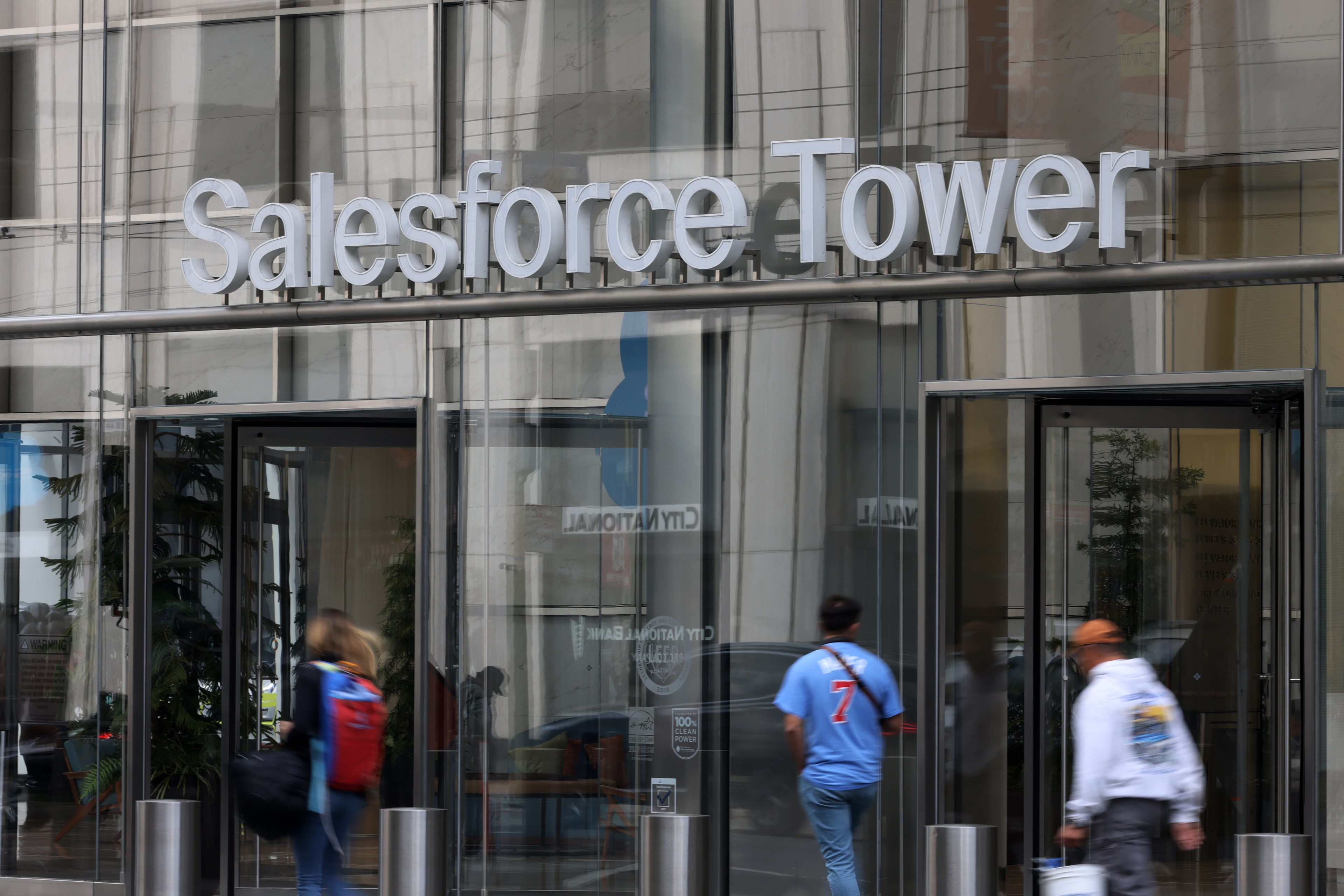The San Francisco economy might still be losing jobs, but those that remain are increasingly of the in-person variety.
Compared with this time last year, San Francisco has seen a 10.8% increase in office visits, according to data from analytics company Placer.ai, which uses cellphone data to measure foot traffic. Only Washington, D.C., has experienced as much growth, the company says in its latest office index report.
However, that optimism—from the standpoint of companies that lease office space and the city coffers dependent on their tax revenues—is tempered by the fact that compared with pre-pandemic times, San Francisco has only recovered about half of its in-person office visits, meaning there is still a ways to go before the downtown core is thriving like it once was.
Moreover, office vacancies are still ticking toward all-time highs, topping out at 34% at the end of the first quarter this year, according to real estate firm Cushman & Wakefield.
But in times of crisis, there are always opportunities. Excess supply means it’s a shoppers’ market for those companies that do want to come to the city right now, and those that are growing from the AI revolution or buoyed by strong sales are taking advantage of the deals.
Take the likes of Adyen and Rippling for example, neither of which are artificial intelligence companies, but have signed two of the largest office leases in San Francisco so far this year.
Last week, the latter signed a multiyear lease for a whopping nine floors at 430 California St., quadrupling its previous office space nearby from 30,000 to 123,000 square feet. At the height of the city’s previous tech boom, WeWork once leased the entire 21-story building.
Rippling, which produces an automated HR and payments system, has been on a growth tear since its founding in 2016. The company managed to raise $250 million at the height of the pandemic in 2021 and followed that up with another $500 million last year, raising its valuation to over $11 billion.
As a result, the company has plans to hire across all functions, including product, engineering, sales and marketing, Rippling Senior Vice President of HR and Client Services Darcy Mackay told The Standard.
“Rippling is not a siloed or single-product company,” Mackay said, adding that research and development generally requires workers to be there in person. “We’re building a fully integrated, all-in-one system, which requires collaborative, integrated teams.”
While the company currently only requires its employees to come in three days a week, the new offices will allow Rippling to host more in-person customer events, workshops and training sessions, Mackay said.
The explosion of the artificial intelligence sector has also fueled new demand for office space in San Francisco. OpenAI, which already signed the city’s biggest office lease last year in Mission Bay, is reportedly shopping for more space nearby at the site of Old Navy’s previous headquarters at 550 Terry A. Francois Blvd. The company did not immediately respond to a request for comment.
Meanwhile, in February, an AI startup with a focus on bio-med known as Unlearn.AI quadrupled its office space by signing a four-year lease for 17,220 square feet at 303 Second St.
Chief Financial Officer Jack McGovern previously told The Standard that the move was necessary to support the company’s impending go-to-market launch, for which it expects to hire 35 more employees on the technical and business development side.
Unlearn does not have a strict return-to-office mandate for its workers, but McGovern said recently that the company’s new digs are a “much more inviting, compelling and enjoyable experience” and that has helped it see an uptick in in-person attendance.
Elsewhere, Salesforce, one of San Francisco’s largest employers, has quietly begun requiring some teams to come into the office as many as four days a week since February, confirmed two employees who wanted to remain anonymous because they did not have permission to speak to the media.
Last year, Salesforce trimmed 45% of its office footprint as a result of its commitment to hybrid work. “Our hybrid approach empowers leaders to make decisions for their teams about how and where they work,” a company spokesperson told The Standard.
In its report, Placer.ai added that the likes of New York and Miami have managed to regain up to 80% of their pre-pandemic office traffic, since they were not as reliant on the tech industry as San Francisco. Still, the return-to-office activity is still concentrated in the middle three days of the week, Placer.ai says, with traffic on Mondays and Fridays still down nearly 50% across the board since 2019.
Michael Cockburn, co-founder of Desana, a Scottish software company, has been traveling to San Francisco for months at a time since the start of last year. He does so because his company—which helps firms manage their hybrid workplaces in one platform—now gets up to 80% of its revenue from customers either headquartered in the city or in Silicon Valley.
“San Francisco is differentiated from any other city in the world,” Cockburn told The Standard over the phone, fresh off the plane back at home in Edinburgh. “The default attitude there is meaningfully more ambitious than anywhere else. As you spend more time there, you even start to adopt that behavior as well.”
For that reason, Cockburn said he’d like to return and formally open a Desana office in San Francisco in the near future. Until then, he’s looking to hire the company’s first non-remote role based solely in the city.
“A small, high-quality shopfront style where we can welcome people face-to-face sounds nice to me,” he said. “Definitely not rows and rows of desks.”
